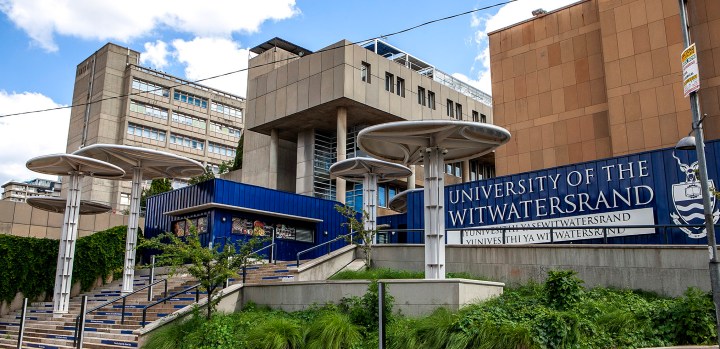VACCINE MANDATES
More universities implement mandatory vaccination policies

Stellenbosch University (SU) and the University of Johannesburg (UJ) are the latest higher education institutions to announce their intentions of making Covid-19 vaccination an institutional rule. The University of Cape Town (UCT), the University of the Free State (UFS) and the University of the Witwatersrand are also among those that have already announced mandatory vaccinations for the 2022 academic year.
SU announced on 3 December that it intends to make Covid-19 vaccination “a binding institutional rule”. The vaccination mandate will take full effect from the start of the second quarter in 2022, or such later date as the council may decide, and will remain implemented until the Covid-19 pandemic diminishes to a point where the rule can safely be rescinded.
During this period, students’ continuation of study at SU will be dependent on their vaccination status, according to the institution’s draft vaccination policy.
SU staff will also be required to prove that they are fully vaccinated against Covid-19 before being “permitted to fulfil their employment obligations to SA on its premises, unless they can be reasonably accommodated elsewhere or in some other way”, reads SU’s institutional rule regarding vaccination against Covid-19.
The higher education institution has said that the public has the opportunity to comment on the draft institutional rule regarding vaccination from 3 December 2021 until 15 January 2022.
“The period for public participation will last until 15 January 2022, after which the comments and inputs provided will be considered. The vaccination rule will then be finalised for internal consultation and approval – in the first instance, by the council,” SU spokesperson Martin Viljoen told DM168.
“Staff and students are invited to participate in the public consultation. The further internal consultations, including the SRC and other institutional bodies, will take place in the lead-up to the approval of the Institutional rule,” said Viljoen.
SU’s Student Representative Council (SRC) chairperson, Viwe Kobokana, told DM168 that she, the chairperson of the Tygerberg SRC and the chairperson of the Prim Committee formed part of the Risk Assessment Forum at SU. A report drafted by the forum was presented to student leaders for consultation and comment, and those comments were then integrated into the forum’s report, which ultimately informed the vaccination rule, said Kobokana.
Kobokana added that the SRC supported the SU’s proposed vaccination mandate.
“As an SRC our vision, mission and mandates prioritise the safety of students as well as education and positive knowledge. Furthermore, we have seen the effects that remote learning and teaching, as well as a lack of in-person social activities, have had on students. We therefore do see a need for some form of regulation if it will lead to students once again having a safe campus experience,” Kobokana told DM168.
According to Viljoen, SU will continue with a “flexible, hybrid mode” of remote teaching, learning and assessment for the first semester of 2022, up until such time as the vaccine policy comes into full effect.
Mandatory vaccinations for UJ
UJ announced its decision to make Covid-19 vaccination mandatory this week. The tertiary education institution’s decision follows news of the Omicron variant identified in South Africa.
The UJ council made the decision in favour of mandatory vaccinations for staff and students to be implemented from 1 January 2022, saying: “The vaccination policy means that staff, postdoctoral research fellows and students will need to provide UJ with their vaccination status (indicating first vaccination completed or fully vaccinated) before gaining access to any UJ campus or facility.”
The measures also apply to ad hoc contractors, identified stakeholders and visitors, it said.
In addition to SU and UJ, other South African universities that have opted for mandatory vaccination policies are:
- UCT
- The University of the Western Cape
- Rhodes University
- UFS
- The University of the Witwatersrand
NMU’s stance on vaccinations
Nelson Mandela University (NMU) is one higher education institution that has not announced intentions to make Covid-19 vaccination mandatory.
In response to questions from DM168, NMU communications manager Zandile Mbabela said: “Since the advent of the coronavirus pandemic, Nelson Mandela University has been guided by developments in, and the national response to, the pandemic as well as its own assessment of the Covid-19 impact on staff and students in accordance with its context.
“Thus far, the university has been strongly advocating for staff and students to get vaccinated, as this will significantly contribute to fostering a safer campus environment for all.”
While Mbabela did not disclose whether the university was considering mandatory vaccination, she said NMU is constantly monitoring the vaccination status of its staff and students.
Mbabela added that students will be requested to upload their vaccination certificate at registration, and mobile vaccine sites will be at registration venues in 2022.
Commenting on NMU’s decision not to implement a Covid-19 vaccination policy, Mbabela said: “The South African Government has not yet pronounced on the matter of mandatory vaccinations. There is also presently no Covid-19 vaccination policy for the higher education sector that we are aware of.” DM168
This story first appeared in our weekly Daily Maverick 168 newspaper which is available for R25 at Pick n Pay, Exclusive Books and airport bookstores. For your nearest stockist, please click here.
"Information pertaining to Covid-19, vaccines, how to control the spread of the virus and potential treatments is ever-changing. Under the South African Disaster Management Act Regulation 11(5)(c) it is prohibited to publish information through any medium with the intention to deceive people on government measures to address COVID-19. We are therefore disabling the comment section on this article in order to protect both the commenting member and ourselves from potential liability. Should you have additional information that you think we should know, please email [email protected]"




















 Become an Insider
Become an Insider